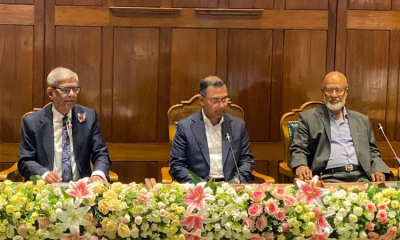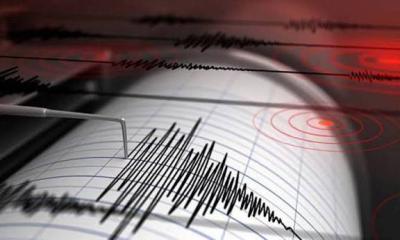A strong earthquake shook the northern Philippines on Wednesday, injuring at least one person, damaging buildings and prompting many people in the capital to run outdoors.
The 7 magnitude quake was centered around Abra province in a mountainous area, said Renato Solidum, the head of the Philippine Institute of Volcanology and Seismology.
“The ground shook like I was on a swing and the lights suddenly went out. We rushed out of the office, and I heard screams and some of my companions were in tears,” said Michael Brillantes, a safety officer of the Abra town of Lagangilang, near the epicenter.
“It was the most powerful quake I’ve felt and I thought the ground would open up,” Brillantes told The Associated Press by cellphone.
At least one elderly villager suffered a cut in her foot and was treated in a clinic, Brillantes said, adding many houses and building had cracked walls, including some which collapsed.
Authorities were checking if damage or landslides had occurred in mountainside villages in the northern fringes of Abra, a landlocked agricultural province.
The quake’s strength was lowered from the initial 7.3 magnitude after further analysis. The quake was set off by movement in a local fault at a depth of 25 kilometers (15 miles), the institute said, adding it expected damage and more aftershocks.
The U.S. Geological Survey measured the quake’s strength at 7.0 and depth at 10 kilometers (6 miles). Shallower quakes tend to cause more damage.
The Philippines lies along the Pacific “Ring of Fire,” an arc of faults around the Pacific Ocean where most of the world’s earthquakes occur. It is also lashed by about 20 typhoons and tropical storms each year, making it one of the world’s most disaster-prone countries.
A magnitude 7.7 quake killed nearly 2,000 people in the northern Philippines in 1990.




-20260216055149.webp)


-20260215061522.webp)





-20260217073221.webp)




-20260216115008.webp)



















